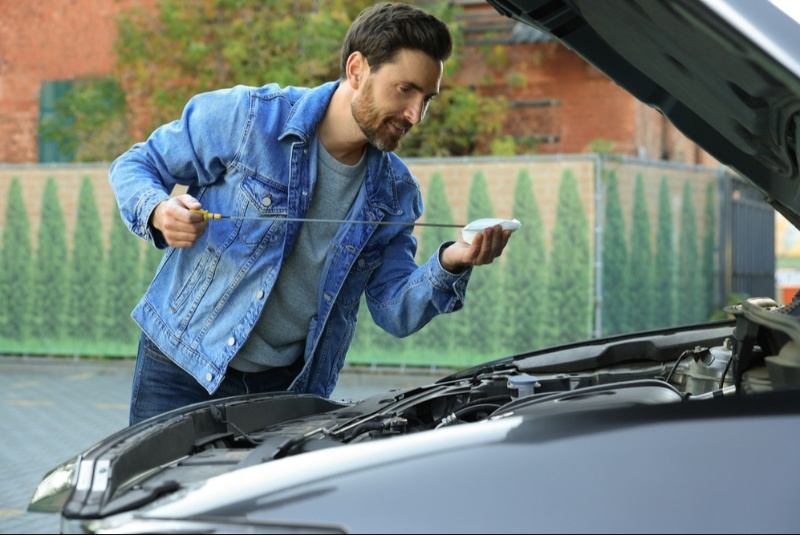Owning a car can be expensive, but regular maintenance and smart strategies can help you save money on car expenses. From routine maintenance to driving habits, there are many ways to keep your car running efficiently and extend its lifespan. This comprehensive guide provides practical tips and tricks to reduce your car expenses while ensuring your vehicle remains in top condition. Implement these strategies to save money and enjoy a more cost-effective driving experience.
Perform Regular Oil Changes
Regular oil changes are essential for keeping your engine running smoothly and efficiently. Over time, oil breaks down and becomes less effective at lubricating engine components, leading to increased wear and tear. Follow your vehicle manufacturer’s recommended oil change intervals, usually every 3,000 to 5,000 miles, depending on the type of oil used. Performing regular oil changes helps maintain engine performance, improve fuel efficiency, and prevent costly repairs down the line. Keeping your engine properly lubricated is a simple yet effective way to save on car expenses.
Check Tire Pressure Regularly
Maintaining the correct tire pressure is crucial for safety, fuel efficiency, and tire longevity. Under-inflated tires increase rolling resistance, which reduces fuel economy and causes premature tire wear. Over-inflated tires can lead to a harsh ride and uneven tire wear. Check your tire pressure at least once a month and before long trips, using a reliable tire pressure gauge. Inflate your tires to the manufacturer’s recommended levels, which can be found in the owner’s manual or on a sticker inside the driver’s door. Regularly checking tire pressure helps optimize fuel efficiency and extend the life of your tires.
Rotate and Balance Tires
Regular tire rotation and balancing help ensure even tire wear and prolong the life of your tires. Tire rotation involves changing the position of each tire on your vehicle, typically every 5,000 to 7,000 miles. Balancing involves adjusting the weight distribution of each tire to ensure a smooth ride. Both services are often performed together during routine maintenance visits. Properly rotated and balanced tires improve handling, extend tire life, and reduce the risk of uneven wear, saving you money on tire replacements.
Replace Air Filters
A clean air filter is essential for optimal engine performance and fuel efficiency. Over time, air filters become clogged with dirt and debris, restricting airflow to the engine. This can lead to reduced fuel economy and increased emissions. Check your air filter every 12,000 to 15,000 miles or as recommended by your vehicle’s manufacturer. Replace it if it appears dirty or clogged. Replacing air filters regularly helps maintain engine efficiency and improves fuel economy, reducing your overall car expenses.
Maintain Proper Fluid Levels
Regularly checking and maintaining proper fluid levels is crucial for your vehicle’s performance and longevity. This includes engine oil, coolant, brake fluid, transmission fluid, and power steering fluid. Low or contaminated fluids can lead to various mechanical issues and costly repairs. Consult your owner’s manual for the recommended fluid types and levels. Regularly check and top off fluids as needed, and have them flushed and replaced according to the manufacturer’s guidelines. Maintaining proper fluid levels ensures your vehicle operates smoothly and helps prevent expensive repairs.

Keep Your Battery in Good Condition
A well-maintained battery is essential for reliable vehicle operation. Check the battery terminals for corrosion and clean them as needed. Ensure the battery is securely mounted and the connections are tight. Test your battery regularly, especially before extreme weather conditions, to ensure it holds a proper charge. Replace the battery every 3 to 5 years or as recommended by the manufacturer. Keeping your battery in good condition helps prevent unexpected breakdowns and extends its lifespan, saving you money on replacements and potential towing costs.
Use Quality Fuel and Additives
Using high-quality fuel and appropriate fuel additives can improve engine performance and fuel efficiency. Premium fuels with higher octane levels can prevent engine knocking and improve combustion in some vehicles. Fuel additives can clean the fuel system, remove deposits, and enhance performance. Follow your vehicle manufacturer’s recommendations for fuel type and consider using additives periodically to maintain engine cleanliness. Using quality fuel and additives helps optimize engine performance and fuel economy, reducing your overall car expenses.
Monitor and Replace Belts and Hoses
Belts and hoses are critical components of your vehicle’s engine and cooling system. Over time, they can become worn, cracked, or damaged, leading to engine overheating or mechanical failure. Inspect belts and hoses regularly for signs of wear and replace them according to the manufacturer’s guidelines. Replacing worn belts and hoses before they fail prevents costly repairs and ensures your vehicle runs smoothly. Regular inspections and timely replacements help maintain your vehicle’s reliability and reduce the risk of breakdowns.
Drive Smoothly and Efficiently
Your driving habits significantly impact your vehicle’s fuel efficiency and overall wear and tear. Avoid aggressive driving, such as rapid acceleration, hard braking, and high-speed driving, as these behaviors increase fuel consumption and strain the engine. Instead, drive smoothly and maintain a consistent speed. Use cruise control on highways to optimize fuel economy. Additionally, avoid idling for extended periods, as it wastes fuel. Adopting smooth and efficient driving habits helps improve fuel efficiency, reduce wear on your vehicle, and save money on fuel and maintenance costs.
Maintain the Cooling System
The cooling system is vital for preventing engine overheating and ensuring optimal performance. Regularly check the coolant level and condition, and top it off as needed. Flush and replace the coolant according to the manufacturer’s recommendations, usually every 30,000 to 50,000 miles. Inspect the radiator, hoses, and water pump for leaks or damage. Maintaining the cooling system helps prevent overheating, which can cause severe engine damage and costly repairs. Proper cooling system maintenance ensures your engine operates at the correct temperature, improving efficiency and reliability.
Replace Worn Wiper Blades
Worn wiper blades can reduce visibility during rain or snow, compromising safety. Inspect your wiper blades regularly and replace them if they show signs of wear, such as streaking, skipping, or splitting. Most wiper blades need replacement every 6 to 12 months. Investing in high-quality wiper blades ensures clear visibility in adverse weather conditions, enhancing safety and driving comfort. Regularly replacing worn wiper blades is a simple and cost-effective way to maintain your vehicle’s safety features.
Keep Your Car Clean
Regularly washing and waxing your car not only keeps it looking good but also protects the paint and reduces the risk of rust and corrosion. Dirt, grime, and road salt can damage the exterior and undercarriage of your vehicle. Clean the interior regularly to prevent wear and tear on upholstery and trim. Maintaining a clean car enhances its appearance, preserves its value, and prevents long-term damage. Keeping your car clean is a straightforward way to extend its lifespan and reduce maintenance costs.
Plan Regular Maintenance
Adhering to your vehicle’s maintenance schedule is crucial for its longevity and performance. Follow the manufacturer’s guidelines for routine services such as oil changes, tire rotations, brake inspections, and fluid replacements. Keep a record of all maintenance activities to track your vehicle’s health and identify potential issues early. Regular maintenance ensures your vehicle runs efficiently, prevents breakdowns, and reduces the risk of expensive repairs. Planning and following a maintenance schedule helps you stay proactive in caring for your vehicle and managing costs effectively.
Saving on car expenses requires a combination of regular maintenance, smart driving habits, and proactive care. By performing routine oil changes, maintaining proper tire pressure, and using quality fuel, you can enhance your vehicle’s performance and extend its lifespan. Regular inspections and timely replacements of key components, such as belts, hoses, and wiper blades, prevent costly repairs and ensure safety. Embrace these maintenance tips and tricks to reduce your car expenses, improve efficiency, and enjoy a reliable and cost-effective driving experience. Taking care of your vehicle not only saves money but also provides peace of mind on the road.




